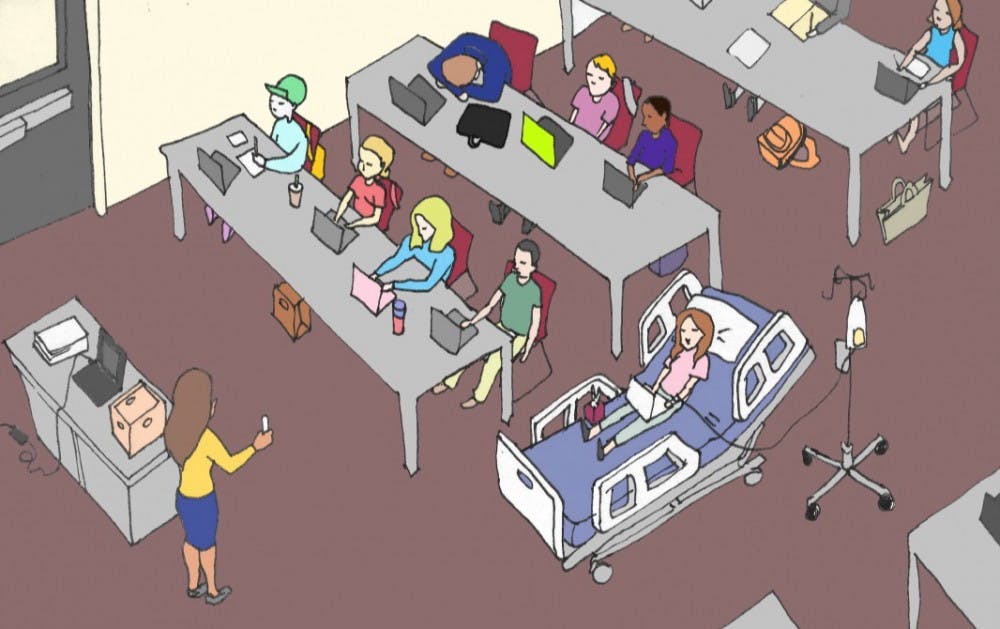Being a college student requires one to prioritize their academic career over their personal lives almost daily.
There are defensible occasions where students are forced to put their personal lives before their next exam or assignment, and it usually falls under dire circumstances. Yet professors generally consider situations such as sudden deaths, religious matters or intense illnesses as acceptable reasons.
ASU professors should be more lenient with what can classify as an excused absence in order to work with a student's mental health and monetary resources, such as being unable to afford going to the doctor.
Many students sacrifice a lot in order to be able to attend university, and it is time for the culture surrounding excused absences to progress with the modern student experience.
For many independent and relocated students, doctors visits are costly and not always seen as a viable option, especially considering their workload. Students may often prefer to put up with their untreated illnesses in order to prevent damage to their grade, meanwhile putting at risk their own health and that of others.
Many professors treat excused absences as circumstantial, but across the board, excused absences tend to rely on doctors notes or other documentation as proof. While documented proof is understandable, professors must consider the added pressure on students to attend their classes, especially for those with actual medical needs.
It is in both the best interest of the professor and the student to be lenient with this policy and to grant students who cannot afford healthcare visits the excused medical absence. According to a Bankrate Money Pulse survey, 31 percent of millennials did not seek medical attention due to costs.
Professors who only permit excused absences with doctors notes are classist.
Additionally, mental health needs to be treated as a legitimate issue that impacts members of the student body. By doing this, the climate surrounding the conversation can change for the better.
Madison Sutton, the co-founder of the upcoming ASU-based organization Home Based Initiative and senior studying psychology and global studies, works on self-care projects and the accessibility for mental health information catered to students.
According to reported statistics from the National Alliance on Mental Illness, "64 percent of young adults are no longer in college are not attending college because of a mental health related reason."
Mental health days should also count as acceptable excused absences for college students in order to allow them to take control of their lives in uncontrollable situations. This can also be a preventative tactic to avoid further complications with students.
“This isn’t a small group of people that need mental health days," Sutton said. "It’s a large majority of their students that would benefit from mental health days."
Mental health days are not meant for lounging around and ignoring responsibilities, but are meant to recharge a student's mindset in order to efficiently conquer daily tasks. During overbearing mental health days, Sutton mentioned that students cannot focus on school work.
“The benefits of a mental health day only come if you use it effectively,” Sutton said.
The necessity for mental health days should not be taken lightly and must be addressed by both students and faculty.
Overall, permitting other types of excused absences is not about creating an environment where students can get away with skipping class, but about working with the resources that are realistically given to students.
The current standard policies for excused absences favor more privileged students and ignore the existence of mental illnesses among other circumstances.
Reach the columnist at jguzma19@asu.edu or follow @JennyGuzmanAZ on Twitter.
Editor’s note: The opinions presented in this column are the author’s and do not imply any endorsement from The State Press or its editors.
Want to join the conversation? Send an email to opiniondesk.statepress@gmail.com. Keep letters under 500 words and be sure to include your university affiliation. Anonymity will not be granted.
Like The State Press on Facebook and follow @statepress on Twitter.




